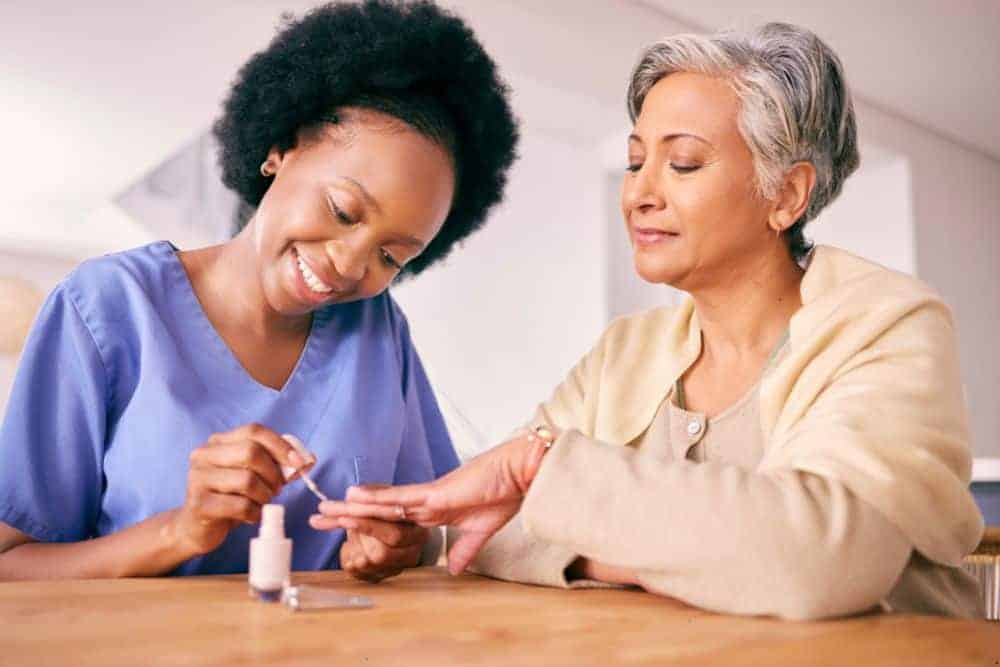
For many elderly people, grooming is no longer a simple part of their daily life. Tasks as easy as brushing hair and trimming nails can become difficult for them because their mobility decreases and energy wanes. These challenges often go unnoticed until they start to affect the overall health and well-being of seniors.
Proper grooming does more than help seniors look presentable. It supports their physical health, prevents common hygiene-related issues, and boosts their emotional confidence. It is a form of care that acknowledges and respects their dignity. In this article, we’ll discuss why grooming is essential for our aging loved ones.
5 Benefits of Proper Grooming for the Elderly
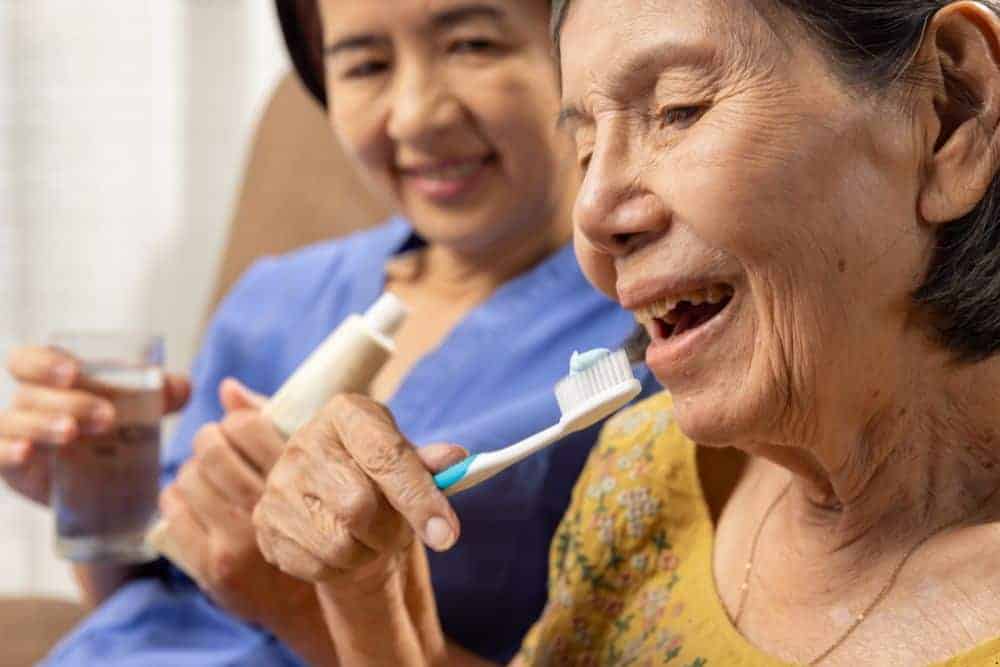
Proper grooming plays a crucial role in the overall well-being of elderly loved ones. It goes far beyond appearance and has a deep and lasting impact on their lives. Here are five benefits of maintaining proper grooming habits for seniors:
Improved Physical Health
The immune system of the body weakens with aging which makes it more susceptible to infections and illnesses. Regular grooming helps prevent these illnesses. Frequent bathing removes dirt, bacteria, and excess oils from the skin. Hence, it reduces the risk of infections, body odor, and fungal problems.
Oral hygiene, such as brushing, flossing, and dental check-ups, prevents gum disease, cavities, and tooth loss. Nail care is also essential for your loved ones because their long or thickened nails can cause fungal infections, ingrown nails, and pain, impacting their well-being.
For seniors with diabetes, regular foot care is even more critical to prevent ulcers and injuries that may not heal properly. Clean hair and scalp minimize dandruff, lice, and scalp infections, while regular trims prevent discomfort from matting or overgrowth. Together, these practices ensure seniors remain healthier, more comfortable, and less vulnerable to preventable illnesses.
Enhanced Emotional Well-Being
Proper grooming does wonders for the mental health of the elderly. When seniors feel clean and presentable, you will see a visible improvement in their confidence and self-esteem.
Personal grooming also fosters a sense of pride and dignity. They feel respected and valued. Poor hygiene can make them feel embarrassed or neglected, which often causes anxiety and depression.
Grooming routines also provide structure and consistency, especially for seniors with cognitive issues like dementia. The predictability of daily or weekly grooming activities creates a sense of security and comfort, which is crucial for their mental clarity.
Prevention of Skin Problems
The skin becomes thinner, drier, and more fragile with age, making it prone to irritation and infections. Proper grooming helps protect the skin and prevent common issues.
Regular moisturizing prevents dryness, cracking, and itching, which can lead to painful infections if untreated. Seniors with limited mobility are particularly at risk for bedsores. These can be prevented through consistent hygiene, gentle cleansing, and repositioning.
Grooming also allows caregivers to monitor the skin closely for rashes, bruises, or abnormal spots that may require medical attention, such as infections, wounds, or early signs of skin cancer.
Improved Mobility and Safety
Neglecting grooming can result in physical discomfort in seniors. Overgrown nails, especially on the feet, can cause pain and balance issues, increasing the risk of falls. For seniors, even small accidents can lead to severe injuries and prolonged recovery times.
Proper nail care ensures they can walk safely and comfortably. Clean and well-maintained hair also reduces irritation and ensures clear vision when it is kept away from the face.
When seniors feel fresh, clean, and free from discomfort, they are more confident in their movements and daily tasks. Proper grooming supports their mobility, independence, and ability to perform essential activities without physical hindrance.
Strengthened Social Connections
Socialization is essential for seniors’ mental and emotional health, and proper grooming encourages them to engage with others. When seniors look and feel their best, they are more likely to attend social gatherings, visit family, or participate in community activities. Poor hygiene can lead to social withdrawal in older adults due to embarrassment or low self-esteem, causing loneliness and isolation.
Daily Hygiene Practices for Seniors
As people age, they may face mobility issues, cognitive decline, or skin sensitivity, which can make personal care more challenging. Establishing simple and consistent hygiene routines helps ensure they stay comfortable, confident, and healthy.
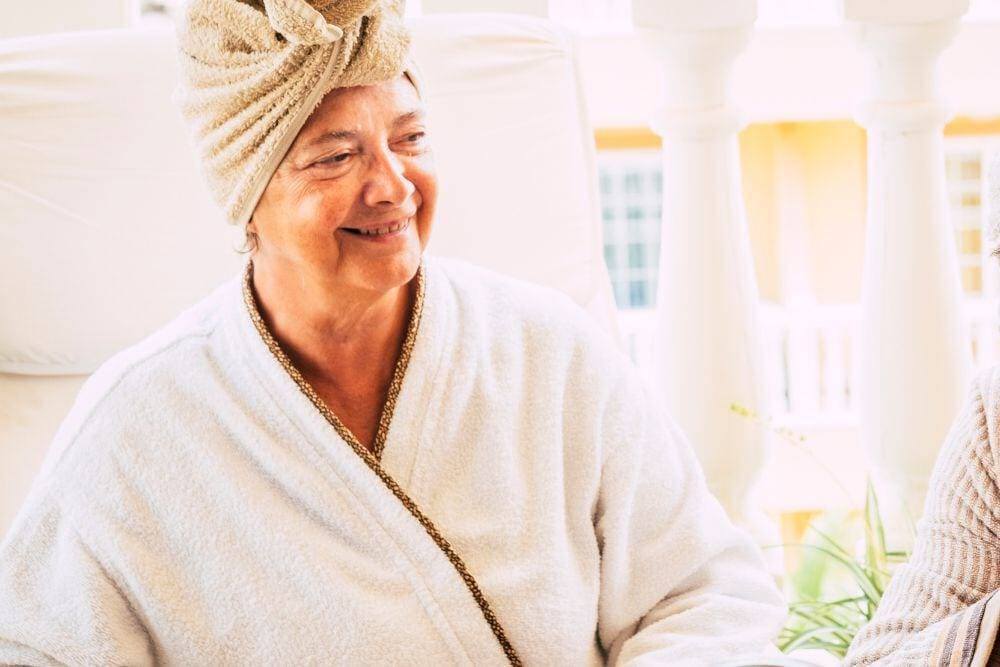
1. Bathing and Skin Care
Bathing regularly is crucial to maintaining clean, healthy skin. For elderly people, a full-body bath or shower 2-3 times a week is often enough. Overbathing can dry out the skin, which becomes thinner and more sensitive with age. Use lukewarm water (around 98°F or 37°C) and mild, fragrance-free soaps to avoid irritation.
For seniors with limited mobility, sponge baths can be an effective alternative to full showers. Pay attention to areas prone to moisture, such as underarms, skin folds, and the groin area, to prevent rashes or infections.
After bathing, pat the skin dry gently instead of rubbing, as excessive friction can damage sensitive skin. Apply a hypoallergenic, non-greasy moisturizer immediately after to lock in hydration. Use products containing ceramides or glycerin for better hydration.
Regular skin inspections are also important. Check for redness, pressure sores, or any unusual spots. Early detection of skin issues can prevent more serious problems like pressure ulcers or infections.
2. Oral Hygiene
Oral health can directly impact overall health. Poor dental hygiene can lead to gum disease, cavities, bad breath, and even more serious conditions like heart disease or pneumonia.
Seniors should brush their teeth twice daily using a soft-bristle toothbrush and fluoride toothpaste. Electric toothbrushes can be a great option for those with limited hand dexterity.
If natural teeth are missing, dentures must be cleaned thoroughly after every meal and soaked overnight in a denture-cleaning solution. Gum care is equally essential for the elderly. Rinsing the mouth with a non-alcoholic, antibacterial mouthwash helps maintain oral hygiene.
Caregivers should also ensure seniors drink enough water throughout the day, as dry mouth is common with age and certain medications. Their regular dental check-ups, ideally twice a year, help identify and address oral health issues early.
3. Hair and Scalp Care
Keeping hair clean and well-groomed improves appearance, prevents scalp issues, and boosts self-esteem. Seniors may need to wash their hair 1-2 times a week, depending on their scalp condition and personal preference. For seniors prone to dry scalps, washing less frequently and using a moisturizing shampoo can help.
When you wash their hair, ensure the water is at a comfortable temperature. Gently massage the scalp to improve circulation, and use a wide-tooth comb to detangle hair after washing. If a senior has limited mobility, you can assist them with seated hair washing using portable shampoo basins or no-rinse shampoos.
For seniors with thinning or fragile hair, avoid tight hairstyles or excessive brushing to prevent hair breakage. Scalp health can also benefit from occasional light oil massages with coconut or argan oil, which soothe dryness and irritation.
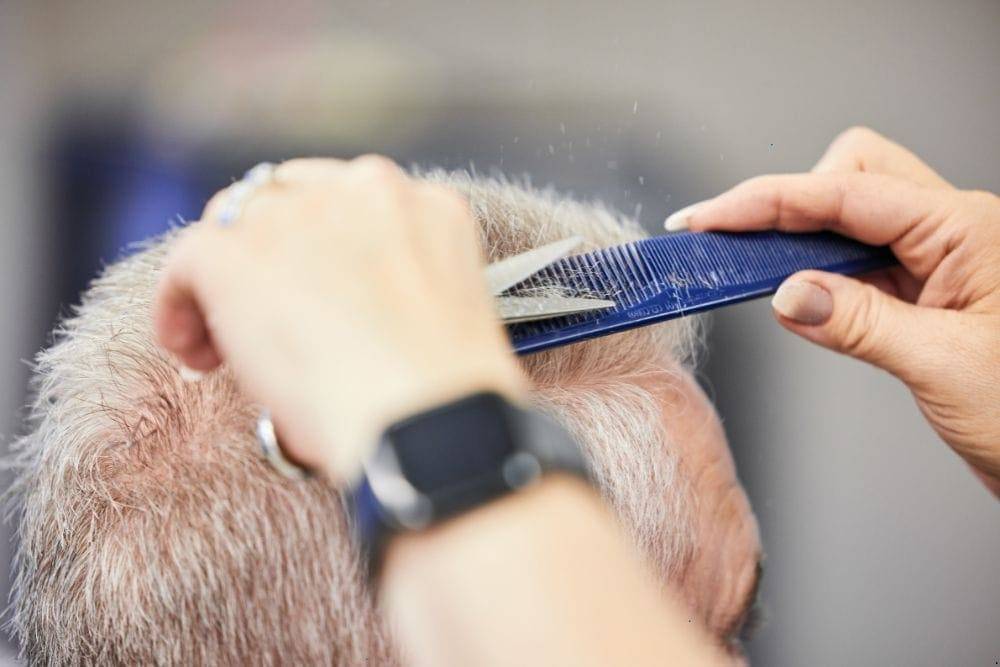
4. Nail Care
Untrimmed nails can lead to discomfort, ingrown nails, or fungal infections, especially in seniors with diabetes or poor circulation. Fingernails should be trimmed every 1-2 weeks, while toenails may need attention every 4-6 weeks.
To trim nails properly, soak the hands or feet in warm water for 5-10 minutes to soften the nails. Use sharp, clean clippers to cut straight across and file sharp edges gently. Avoid cutting nails too short to reduce the risk of ingrown nails.
Seniors with diabetes or foot circulation issues should visit a professional podiatrist regularly for toenail care. Ignoring nail hygiene can lead to infections, discomfort, and reduced mobility.
5. Incontinence and Perineal Care
Many seniors experience incontinence, which can be uncomfortable and emotionally distressing if not managed properly. Perineal hygiene plays a key role in preventing skin breakdown, irritation, and infections such as urinary tract infections (UTIs).
After an incontinence episode, clean the affected area gently with warm water and mild, unscented wipes. Pat dry instead of rubbing to avoid irritation. Barrier creams containing zinc oxide can help protect the skin from moisture and prevent rashes.
Encourage the use of absorbent incontinence products like adult diapers or pads, and ensure these are changed regularly to maintain comfort and hygiene. Establishing a bathroom schedule can also help manage incontinence and reduce accidents.
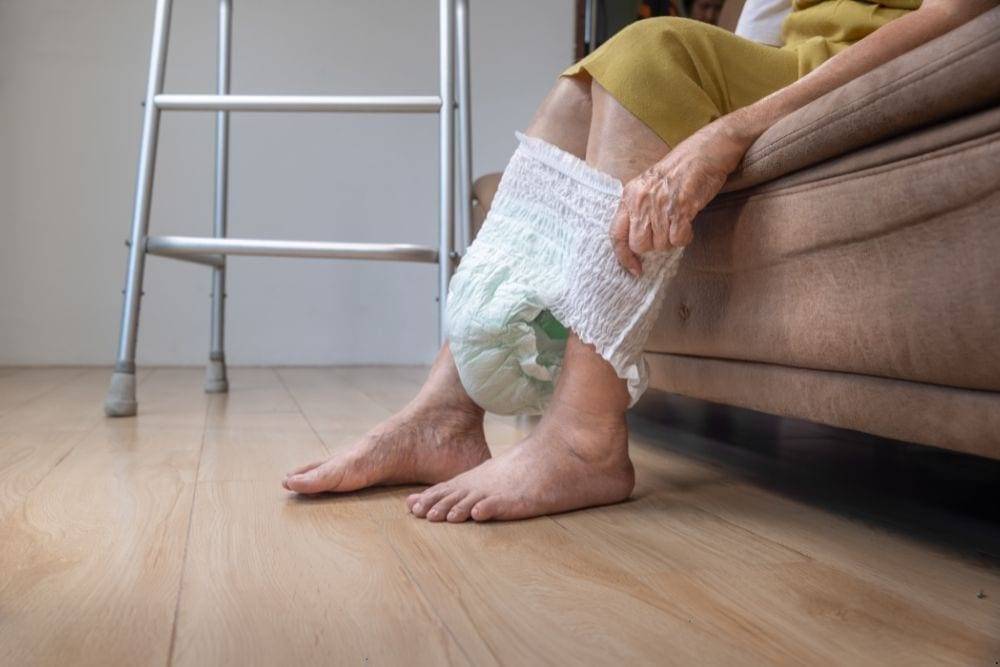
6. Dressing and Personal Appearance
Clean clothing contributes to good hygiene, physical comfort, and emotional well-being. Seniors should wear clean clothes daily or whenever garments become soiled. Adaptive clothing options, such as garments with Velcro fastenings or side zippers, can simplify dressing for those with mobility challenges.
Regularly washing clothes, bed linens, and towels helps maintain hygiene and prevents the buildup of bacteria or odors. Use gentle detergents to minimize irritation for seniors with sensitive skin.
Maintaining personal appearance—such as combing hair, shaving, or applying light makeup—can significantly boost confidence and self-esteem. Simple grooming habits make seniors feel dignified and respected.
Personalize Grooming and Hygiene Practices for Individual Needs
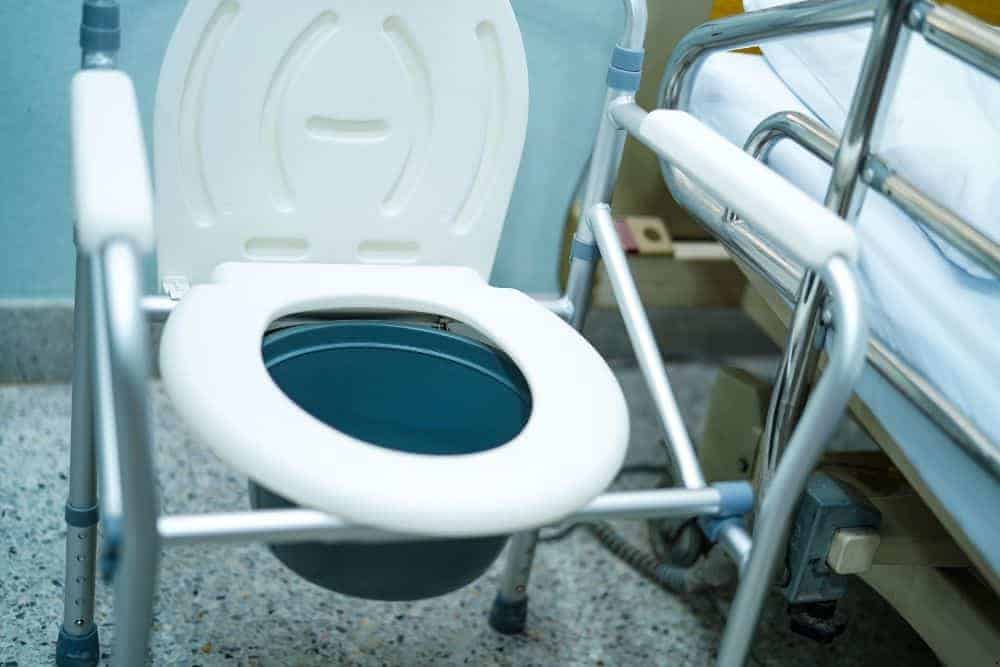
Every senior has unique grooming needs. Their preferences can be shaped by their health, mobility, culture, and personal choices. For caregivers, understanding and respecting these differences is key to providing proper grooming support while preserving the senior’s dignity and comfort.
Health Conditions and Physical Limitations
Health conditions like arthritis, Parkinson’s disease, or dementia can make standard grooming routines difficult. For example, an elderly with limited hand mobility may struggle with brushing their hair or holding grooming tools.
In such cases, caregivers can introduce adaptive tools like wide-handled brushes, electric razors, or automatic toothbrushes. For those with sensitive skin or chronic conditions like eczema, it’s important to use hypoallergenic products and gentle cleansers.
Cultural and Personal Preferences
Grooming is not just about hygiene; it is deeply personal and often tied to cultural identity. Some seniors may have specific preferences for hairstyles, skin-care routines, or grooming products based on their traditions.
For example, certain elderly may prefer weekly oil massages, specific soaps, or methods of shaving that align with their upbringing. Caregivers should take the time to ask about these preferences to ensure they are incorporated into the routine.
Cognitive and Emotional Needs
Seniors with cognitive decline, such as Alzheimer’s may resist grooming activities. This resistance is often caused by confusion, fear, or discomfort.
To address this, caregivers should maintain a calm and positive tone, explaining each step of the process as it happens. Scheduling grooming activities at the same time each day can also help create familiarity and reduce anxiety.
Gentle techniques, such as softly washing hair or offering a favorite scented lotion, can make grooming more soothing and enjoyable.
Adapting to Mobility Levels
Limited mobility can make tasks like bathing, nail trimming, or oral care challenging. Adapting grooming practices to meet mobility needs is essential.
For bedridden seniors, sponge baths or dry shampoos can be used as alternatives to full showers. Non-slip mats, grab bars, and shower chairs can make bathing safer for those with limited balance. Additionally, caregivers can break routines into smaller steps to avoid fatigue, offering rest breaks as needed.
Encouraging Independence and Choice
Whenever possible, encourage the elderly to participate in their grooming routines. Small tasks, like choosing a preferred shampoo or combing their hair, can provide a sense of independence and control.
Offering options, like asking whether they’d prefer a morning or evening bath, also allows them to have a say in their care. Even small choices empower seniors and boost their overall sense of well-being.
Overcoming Challenges and Ensuring Safety in Senior Grooming
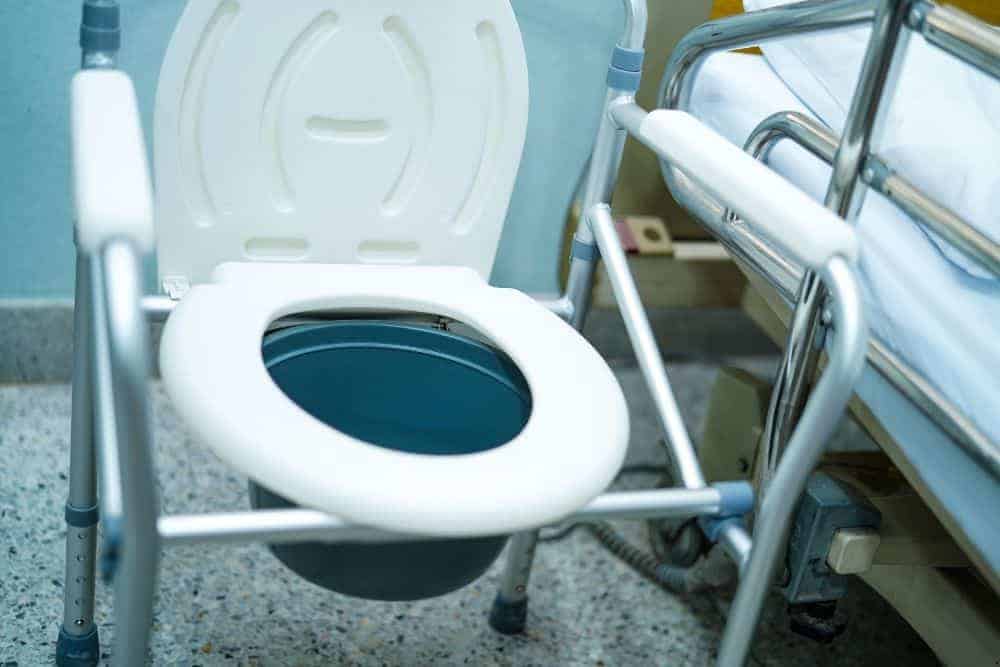
You will come across various practical challenges and safety concerns that require a balanced, compassionate approach. Physical limitations, cognitive changes, and emotional sensitivities all play a role in these challenges. Overcoming these hurdles demands strategies that prioritize comfort, dignity, and well-being.
Physical Challenges and Safe Practices
As seniors age, physical challenges such as reduced mobility, joint pain, or muscle weakness make grooming tasks increasingly difficult. These limitations can cause discomfort or even put them at risk for injury if not handled carefully.
Thoughtful planning and safety-focused equipment and strategies can greatly ease this process.
- Assistive Tools for Comfort and Independence: Tools like long-handled sponges, electric toothbrushes, and shower chairs allow seniors to participate in grooming tasks with less effort. Electric razors with safety guards can prevent cuts while making shaving easier for shaky hands. Adaptive tools with ergonomic grips are especially helpful for those with arthritis or limited hand strength.
- Ensuring a Safe Environment: Falls are a significant concern during grooming. Install grab bars in bathrooms, place non-slip mats on wet surfaces, and ensure the floor is dry at all times. Keeping frequently used items like soap and towels within easy reach can prevent seniors from overextending or losing balance.
- Supportive Positioning for Reduced Strain: For seniors unable to stand for long periods, use shower stools or chairs with back and armrests. For tasks like nail care or shaving, seat them comfortably at a table with proper posture to minimize joint strain.
- Water Temperature and Room Comfort: Elderly skin is thinner and more sensitive. Lukewarm water should always be tested on the caregiver’s elbow to ensure it’s not too hot. Maintain a warm room temperature during grooming to avoid chills and discomfort.
- Soft, Gentle Techniques: Fragile skin requires a light touch. Use soft-bristle brushes, wide-tooth combs, and towels to avoid causing pain or abrasions. For hair washing, use a handheld showerhead to gently rinse without excess pressure.
Cognitive and Emotional Barriers
Cognitive decline, dementia, or emotional discomfort can create resistance to grooming. Seniors may feel confused, fearful, or embarrassed when receiving assistance. Creating a calm, respectful environment is key to overcoming these challenges.
- Routine Builds Comfort: Repetition and consistency help ease anxiety. Perform grooming tasks at the same time each day, in the same order, and familiar surroundings. Predictability helps seniors feel secure and reduces resistance.
- Clear, Step-by-Step Communication: Use short, reassuring sentences to explain each action. For example, “I’m going to wash your hands now, and it will feel nice and warm.” Speak calmly and pause if they seem overwhelmed.
- Maintaining Privacy and Dignity: Ensure seniors feel comfortable by covering body parts not currently being washed with a towel or cloth. Allow them to hold a washcloth if it provides comfort. Always knock or announce your intention before starting any grooming task.
- Encouraging Small Efforts: Empower seniors to participate in smaller tasks like applying lotion, combing their hair, or brushing their teeth. Providing choices, such as “Would you like to wash your face first or your hands?”, gives them a sense of control and involvement.
- Creating a Calming Environment: Grooming can feel stressful, so transform it into a positive experience. Play soft music, light a favorite scented candle, or share comforting conversations and memories.
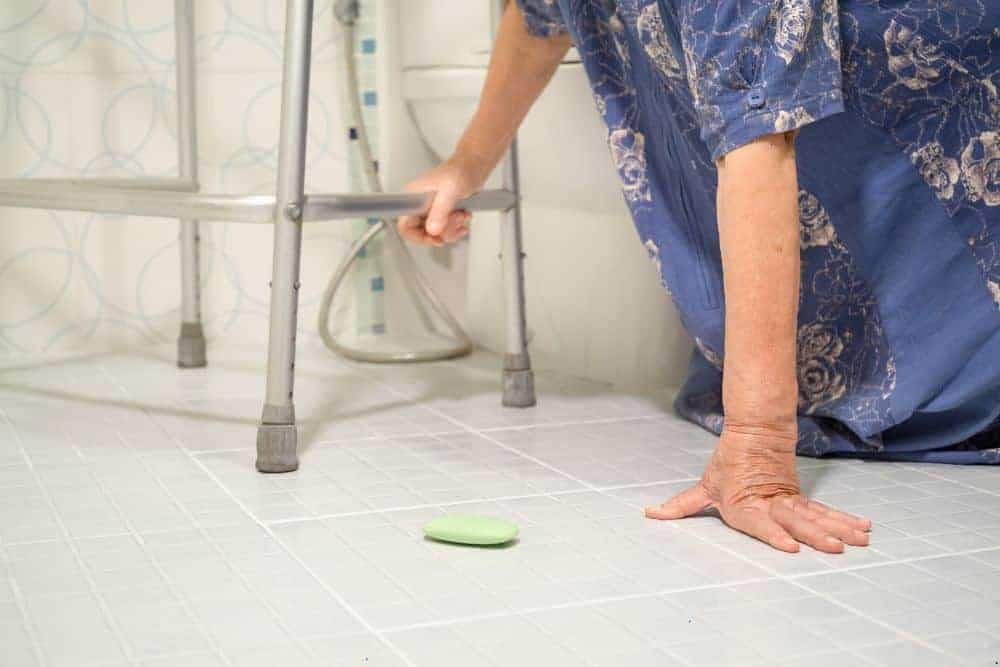
Managing Sensitive Skin and Hygiene with Care
Seniors are more prone to skin dryness, irritation, and infections, which can escalate into serious health concerns if ignored. Gentle hygiene practices and attentive care are crucial.
- Choose Gentle Products: To protect sensitive skin from irritation, use fragrance-free, hypoallergenic, and pH-balanced soaps, shampoos, and lotions. Avoid harsh products containing alcohol or strong chemicals.
- Handle Skin with Care: Instead of rubbing, dry the skin with a soft towel to avoid tears or abrasions. Pay extra attention to skin folds, underarms, and feet to prevent moisture buildup, which can lead to infections.
- Regular Monitoring for Skin Health: Inspect the skin regularly for rashes, redness, sores, or pressure points. Foot care is especially critical, particularly for diabetic seniors, whose minor cuts can become severe if untreated.
- Focus on Nail Hygiene: Trim nails gently and keep them smooth to prevent scratching delicate skin or harboring dirt and bacteria. If professional care is needed, schedule regular appointments for foot or nail care.
Tips for Elderly with Medical Conditions
Some seniors require more specific grooming approaches based on their medical conditions. Addressing these specific needs ensures safety while maintaining their comfort.
- For Arthritis: Use tools with large, easy-to-grip handles to reduce hand strain. Avoid quick or forceful movements when handling stiff joints, and allow extra time for tasks that require fine motor control.
- For Diabetes: Prioritize foot care by inspecting for cuts, sores, or calluses. Keep feet clean and moisturized, but avoid lotion between toes, as excess moisture can cause infections.
- For Dementia and Alzheimer’s: Stick to a calm, predictable routine. Use visual cues like showing the hairbrush before using it, and limit choices to avoid confusion. Speak gently and praise cooperation to build trust.
Professional Support and Resources for Senior Grooming

Professional support ensures that elderly loved ones receive consistent and safe grooming assistance without posing any risk to their health and well-being.
Advice from Health Professionals
Seeking advice from health professionals is equally important. Dermatologists, geriatric specialists, and pharmacists can recommend safe and effective hygiene products tailored to a senior’s skin and health condition.
Aging skin is thinner and prone to dryness, so specialized products like moisturizing cleansers or pH-balanced soaps are crucial. Health experts can also guide caregivers on how often seniors should bathe or wash their hair based on their health status.
Role of Senior Care Agencies
They play a key role in senior grooming. These agencies provide trained caregivers who specialize in assisting seniors with their personal hygiene needs.
Tasks such as bathing, hair care, oral hygiene, nail trimming, and dressing are handled with care and professionalism. Home care services offer relief and reassurance for families who may struggle to meet these needs.
Hiring professional caregivers ensures seniors are groomed safely. For example, improper nail trimming can lead to infections, and slippery surfaces during baths increase fall risks. Caregivers are trained to handle these situations carefully, creating a safer environment. They also understand seniors’ unique needs, such as avoiding harsh soaps or products that may irritate sensitive, aging skin.
Home care agencies often collaborate with health professionals to ensure the best outcomes. Together, they create grooming routines that address medical concerns while improving overall well-being. This teamwork ensures seniors feel comfortable, clean, and cared for, without putting their health at risk.
Conclusion
Proper grooming for our elderly loved ones goes beyond appearance. It promotes better hygiene, supports mental health, and enhances their overall quality of life.
Small routines like regular haircuts, nail care, and skincare help prevent infections and discomfort while boosting confidence and dignity. These simple practices play a big role in keeping our seniors healthy, happy, and well-cared for.
At Amy’s Eden Senior Care, we understand the importance of holistic care, including grooming needs. Our compassionate caregivers are trained to ensure seniors feel clean, comfortable, and confident every day.
Contact us today to learn more about providing your loved ones with the thoughtful care they deserve in a safe, loving environment.




